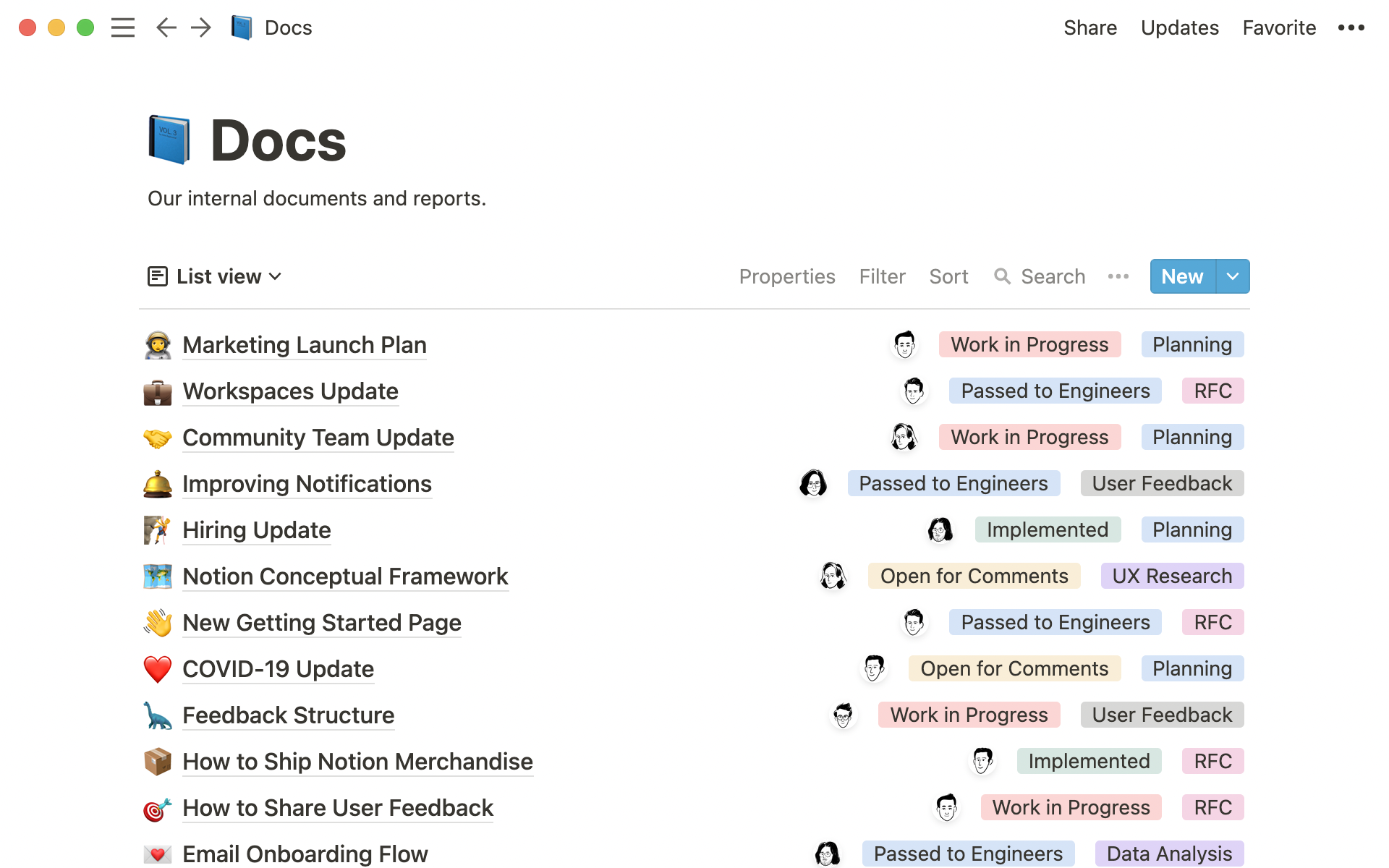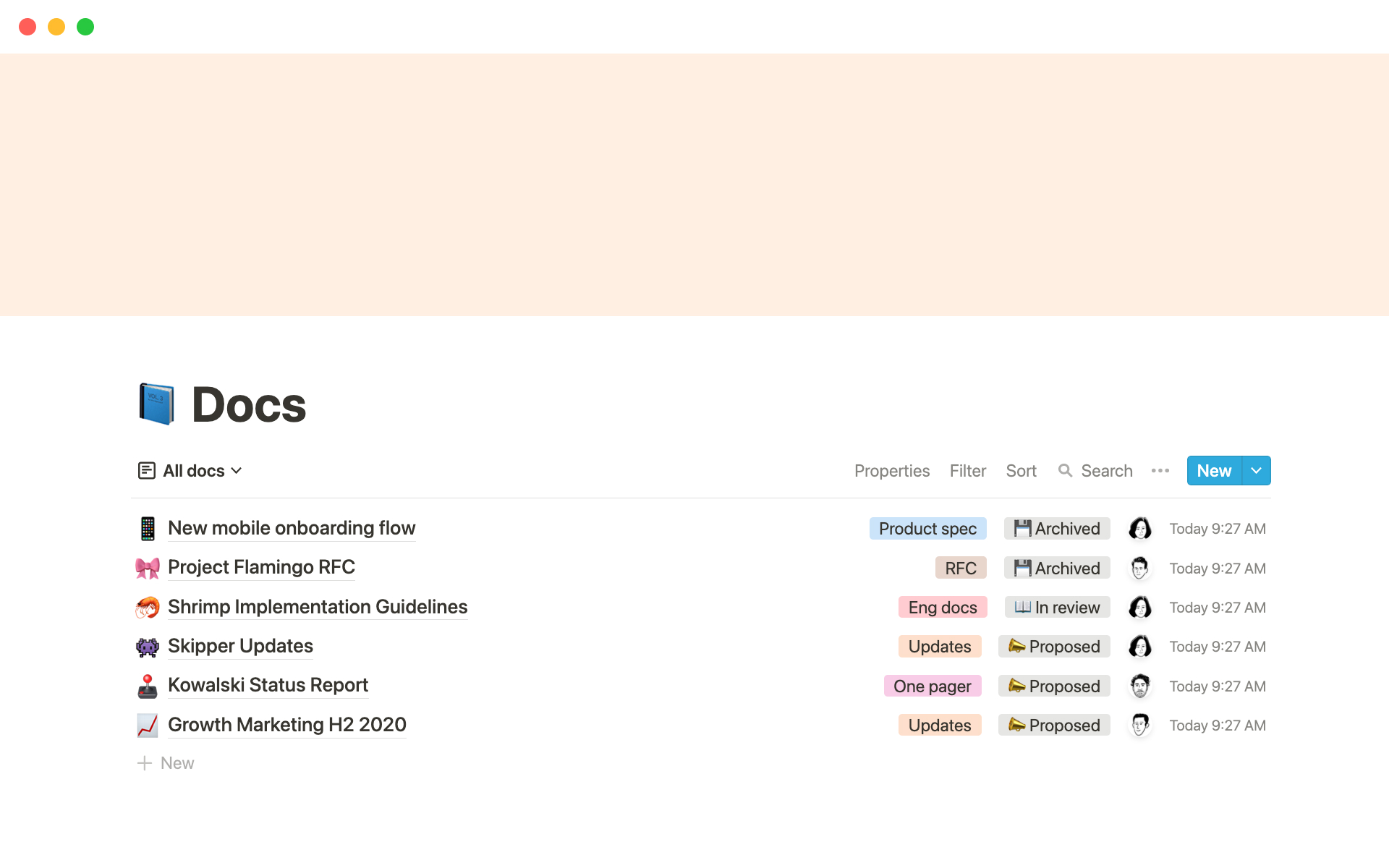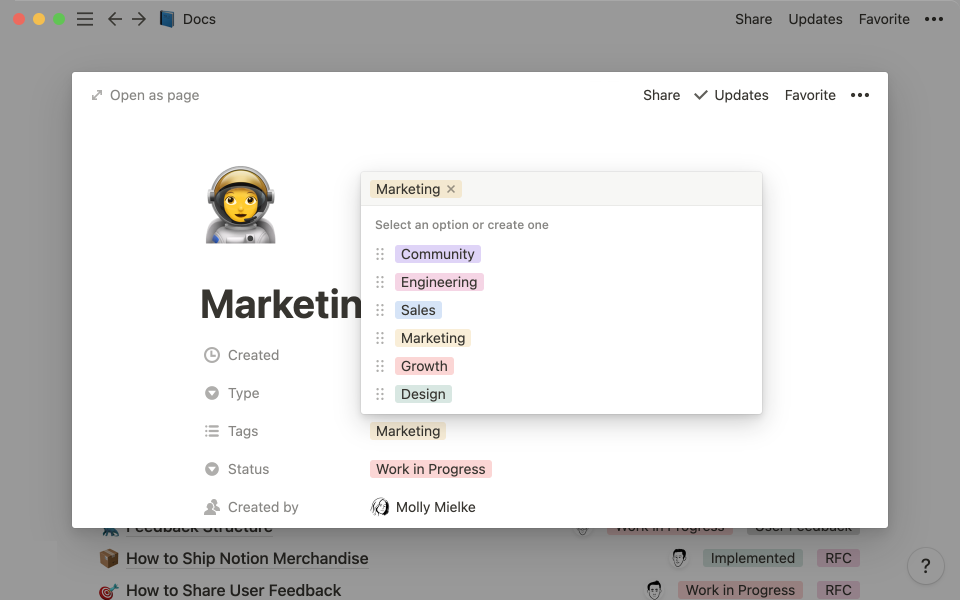Dodge the dumpster fire of scattered files by creating a centralized hub for all your team's information and assets.

Why is file management so important to improving a team’s productivity?
Organizing your files in a centralized knowledge base promotes productivity, creates clarity, and streamlines workflows by establishing a single source of truth that team members can easily access.

In Notion, you can create a file management system that's customized to your needs —categorize and manage files in a way that fits your needs. And it's connected to your team's existing dashboards, project roadmaps, process docs, and more so it's easy to use.

How to use Notion for file management
Sign up for Notion and invite your team.
Create a database where all your files will live.
Start adding files and adding custom properties, like file type, owners, or last updated date.
Share with your teammates as collaborators.



Build a central document repository to streamline file management
Create an easy-to-access knowledge hub to provide teams with self-serve information and improve their productivity
FAQs
What’s the best file management software?
What’s the best file management software?
While this depends on your needs, the most popular online file management options include:
Microsoft OneDrive
Google Drive
Notion
Dropbox
Box
What’s an example of file management?
What’s an example of file management?
Examples of file management systems include:
Knowledge bases that contain self-serve information for internal or external users
Team wikis that store all team knowledge and resources like code snippets and design systems
Dashboards for teams and projects that contain important at-a-glance information to keep stakeholders and team members aligned
What’s essential for good file management?
What’s essential for good file management?
The main components of a file management system are the:
File system
File manager
User interface
These components let you:
Organize files into folders and subfolders
Access and control version history
Delete files
Back up documents
Review and update files
Maintain fine-grained control over access permissions to manage file sharing
Above all, pick one that’s flexible enough to fit your team’s needs.